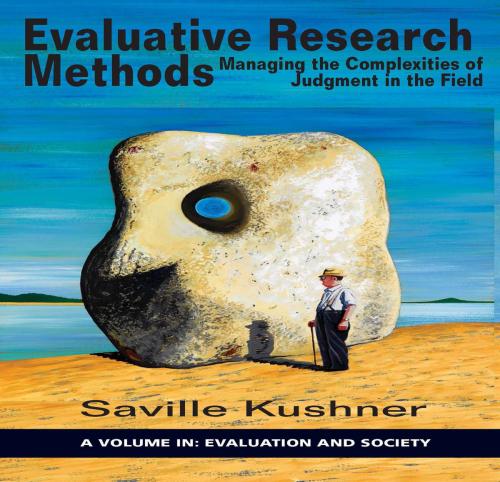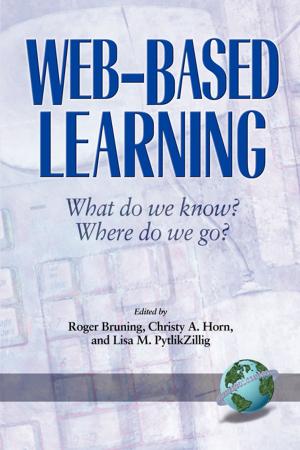Evaluative Research Methods
Managing the Complexities of Judgment in the Field
Nonfiction, Reference & Language, Education & Teaching, Educational Theory, Evaluation, Teaching, Teaching Methods| Author: | Saville Kushner | ISBN: | 9781681236902 |
| Publisher: | Information Age Publishing | Publication: | December 1, 2016 |
| Imprint: | Information Age Publishing | Language: | English |
| Author: | Saville Kushner |
| ISBN: | 9781681236902 |
| Publisher: | Information Age Publishing |
| Publication: | December 1, 2016 |
| Imprint: | Information Age Publishing |
| Language: | English |
How do research students and their supervisors respond in a world of ‘fake news’, the destabilisation of public institutions and the rise of populism? The very foundations of our liberal democracies seem to be under threat, and this implicates social inquiry. Postgraduate research remains one of the few information spaces which are still free of politicisation and committed to validation. This book focuses on democracy in inquiry, and on the role of inquiry in a democracy how research helps us to deliberate over what counts as of public value. It is a research methods book, but methods shaped by political and ethical purposes, and by the challenge of making judgements about what, in the public sphere, is worthy. We may be looking at a police training program, the siting of a clean energy project, a new school curriculum, maternal health program or an environmental adaptation project in each case and in others like them we have to negotiate perspectives and claims, forge and justify a consensus, support competing stakeholders with the best information and analyses possible. And we have to make our work defensible undeniable in the forum of public debate and exchange, examination and accountability. This book, full of examples from contemporary research projects, is designed to help navigate our way through the complexities of social research which focuses on judgements about public action. The book was written with research students and includes examples of their work. It recognises that supervisors often struggle as much as students in meeting the challenges of inquiry that involves some element of evaluative judgement inquiry that potentially carries consequences. Where there are no quick-and-ready recipes, check-lists or theoretical frameworks where we confront the particularities of the context in which the research takes place, we are all forced back onto good methodological thinking, and this is the pedagogical framing of the book.
How do research students and their supervisors respond in a world of ‘fake news’, the destabilisation of public institutions and the rise of populism? The very foundations of our liberal democracies seem to be under threat, and this implicates social inquiry. Postgraduate research remains one of the few information spaces which are still free of politicisation and committed to validation. This book focuses on democracy in inquiry, and on the role of inquiry in a democracy how research helps us to deliberate over what counts as of public value. It is a research methods book, but methods shaped by political and ethical purposes, and by the challenge of making judgements about what, in the public sphere, is worthy. We may be looking at a police training program, the siting of a clean energy project, a new school curriculum, maternal health program or an environmental adaptation project in each case and in others like them we have to negotiate perspectives and claims, forge and justify a consensus, support competing stakeholders with the best information and analyses possible. And we have to make our work defensible undeniable in the forum of public debate and exchange, examination and accountability. This book, full of examples from contemporary research projects, is designed to help navigate our way through the complexities of social research which focuses on judgements about public action. The book was written with research students and includes examples of their work. It recognises that supervisors often struggle as much as students in meeting the challenges of inquiry that involves some element of evaluative judgement inquiry that potentially carries consequences. Where there are no quick-and-ready recipes, check-lists or theoretical frameworks where we confront the particularities of the context in which the research takes place, we are all forced back onto good methodological thinking, and this is the pedagogical framing of the book.















